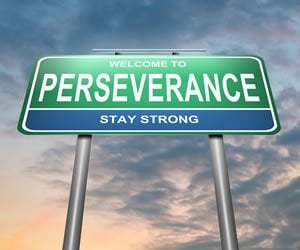
Benefits and Drawbacks: Taking a Gap Year Between Undergrad and Med School
A look at the pros and cons of taking a gap year before medical school.
Written by: Anubodh “Sunny” Varshney
Published on: July 9, 2014

A look at the pros and cons of taking a gap year before medical school.
Written by: Anubodh “Sunny” Varshney
Published on: July 9, 2014

Understanding the role of compensation models and their interplay with contract benefits, coverage and your personal life is crucial to successfully negotiating a compensation package post-residency.
Written by: Sidney Christiansen
Published on: July 7, 2014

Residents, don't forget where you came from when you're not a student anymore.
Written by: Lindsay Heuser
Published on: June 25, 2014

Cindy Stowe shares her thoughts on the field of pharmacy and offers some advice for students.
Written by: Mary Bystrek, PharmD
Published on: June 23, 2014

Taking personal leave from medical school can help you recover from tough situations and succeed in your future career.
Written by: MedSchoolQueen
Published on: June 20, 2014

There are many long-term things to think about when choosing your first job after residency.
Written by: Tom Harbin
Published on: June 18, 2014

Taking steps to prepare for your interviews will reduce stress and strengthen your performance.
Written by: Megan Riddle
Published on: June 13, 2014

There are many factors to consider when choosing the school you will attend for your medical education.
Written by: Anubodh “Sunny” Varshney
Published on: June 11, 2014

Rebecca Lubelczuk shares her thoughts on the field of correctional medicine and offers some advice for students.
Written by: Juliet Farmer
Published on: June 9, 2014

Words of wisdom for new dentists from the American Student Dental Association's blog: Mouthing Off.
Written by: Marcus Neff
Published on: June 6, 2014

Writing a personal statement is challenging, but these tips can get you headed in the right direction.
Written by: Megan Riddle
Published on: June 2, 2014

Many students avoid social media because of its risks without considering the benefits it can provide when used well.
Written by: Sam Scott
Published on: May 30, 2014

There are some experiences you can't prepare for by reading a textbook.
Written by: Ha Nguyen
Published on: May 28, 2014

Dr. John Hunt discusses his varied career as a pediatric asthma specialist, military physician, academic, novelist, and entrepreneur, and offers some advice for students.
Written by: Student Doctor Network
Published on: May 23, 2014

Clinical training is filled with hidden lessons that aren't found in any textbook.
Written by: Megan Riddle
Published on: May 19, 2014

These tips will help you be as prepared as possible for the biggest test you'll take as a premed.
Written by: Anubodh “Sunny” Varshney
Published on: May 14, 2014

Pay attention to details and avoid missteps to make your application stand out.
Written by: Brian Walcott
Published on: May 2, 2014

Medical school may mean you're no longer at the top of your class, but that doesn't mean you won't be successful.
Written by: Megan Riddle
Published on: April 28, 2014

Starting early and allowing yourself time to explore specialties during your first three years of school will put you in strong position to apply and match into the field that best suits you.
Written by: Megan Riddle
Published on: April 21, 2014